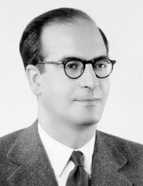

His work on the Continental Blockade (O Bloqueio Continental), which was published before his doctoral thesis but which, as we can infer, was being developed at the same time, is worth mentioning at the outset amongst JBM’s historiographical output because it insists on dealing with theoretical points in approaching economic history and its relationship with political history. In his preface he focuses on the theme of national histories, valuable elements of culture for the formation of ideologies, or parts of them (which are characteristics of general histories), and which “broadly compensate for the lack of men’s direct experience, inevitable in general histories. At the level of direct experience, nothing can replace the sequence of national events”, which furnishes “the unifying sense to a complex social body, structurally integrated in all aspects of human existence, which is concentrated in a collective body, particularly when it is politically independent.” As a historian, Macedo drew attention to “the undeniable individuality that national histories contain”, and, in a second line of consideration, asserted that to the various perspectives that history was required to deal with, military, political and religious, should be added the economic, which lacked in many cases a proper classification of problems in relation to time and a proper evaluation of particular cases.
In the second edition of this study (1990), JBM said that he aimed for an economic history free from determinant ideological pressures, and sought the scientific conditions for a global history within an integrative but non-determinant logic. He aimed to battle against ideology in the human sciences, and to analyse the English Alliance outside the framework of Continentalists vs. Anti-continentalists. And in the light of the experience of the Second World War, he would evaluate Portuguese strategy according to von Clausewitz’s rule of avoiding being subjected to the enemy’s will, and being able to continue the military struggle. There follow his reflections on the possibilities for a small territory in the face of a larger structure, the question of where regional areas start and end, and what constitutes the rear-guard of Europe.
In a similar way he concerned himself with defining the characteristics and the importance of Portuguese culture. In a 1968 work which he gave the title Portuguese Culture in the Contemporary World: A General Problem, he defined what he understood by Portuguese culture. At its outset it may have re-elaborated and reused resources from other areas, but as a form and a function of adaptation and expression, Portuguese culture fulfils its role, for which there is no substitute, in the creation of a language, in its artistic sensibility, in its heroic and epic expression, in the formulation and theorization of its objectives and political possibilities, from its origins.
